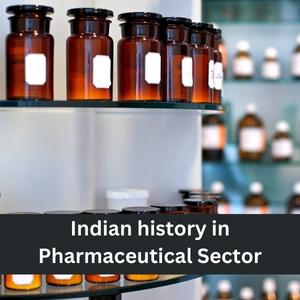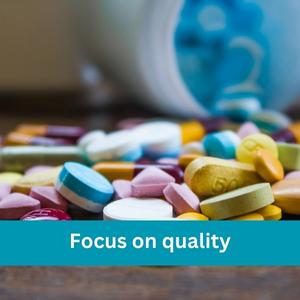Announcement
Get Ready for INDUS CUP 2K26! | Dates: 5–10 January 2026 | Stand a Chance to Win Cash Prizes up to ₹10,00,000!...Read more Get Ready for INDUS CUP 2K26! | Dates: 5–10 January 2026 | Stand a Chance to Win Cash Prizes up to ₹10,00,000!
We are excited to announce the Indus Hackathon 2025, an exhilarating one-day event organized by the CSE Department of Indus University....Read more We are excited to announce the Indus Hackathon 2025, an exhilarating one-day event organized by the CSE Department of Indus University.
26th ISTE Faculty Annual State Convention will be held at Indus University on April 27, 2023....Read more 26th ISTE Faculty Annual State Convention will be held at Indus University on April 27, 2023.
Get Ready for INDUS CUP 2K26! | Dates: 5–10 January 2026 | Stand a Chance to Win Cash Prizes up to ₹10,00,000!...Read more Get Ready for INDUS CUP 2K26! | Dates: 5–10 January 2026 | Stand a Chance to Win Cash Prizes up to ₹10,00,000!
We are excited to announce the Indus Hackathon 2025, an exhilarating one-day event organized by the CSE Department of Indus University....Read more We are excited to announce the Indus Hackathon 2025, an exhilarating one-day event organized by the CSE Department of Indus University.
26th ISTE Faculty Annual State Convention will be held at Indus University on April 27, 2023....Read more 26th ISTE Faculty Annual State Convention will be held at Indus University on April 27, 2023.

Hailed as "the world's pharmacy", the burgeoning pharmaceutical sector of India is a prominent source of path-breaking innovation, especially when it comes to supplying life-saving drugs at low prices to countries that need them the most. The globe still relied on Indian vaccine and pharmaceutical makers to supply its stock of medicines even during the COVID-19 pandemic.
As of March 2021, data show that India had exported 5.84 crore doses of COVID vaccines to 70 countries. India is poised to continue to be one of the most popular pharmaceutical marketplaces in the world because of its low-cost trained labor and well-established manufacturing base. India is also all set to play an even larger part in ensuring the security of the world's supply of drugs.
With a 99.99 per cent price reduction, the Indian pharmaceutical industry helped by facilitating the production and supply of HIV antiretrovirals. Due to its ability to quickly produce newer HIV medications as generics, India is currently the world's top supplier of affordable HIV medications. India is a major source of affordable vaccines to countries all over the world, in addition to pharmaceuticals. India was the first country to commercialize the recombinant Hepatitis B vaccine at a price that the general public could afford, while the multinational pharmaceutical corporations had a complete monopoly on the drug. India is the country with the highest number of pharmaceutical manufacturing facilities that are US-FDA certified, which is important for boosting its pharmaceutical export efforts.


India has become a "medical superpower" in the world over the past few years by enhancing its ecosystem for research and development and boosting pharmaceutical exports. Even while the pandemic engulfed the entire world, the Indian pharmaceutical industry was firmly on the path of innovation and growth. The only thing that can be claimed with 100 per cent certainty is that additional investments will make it possible for India's pharmaceutical industry to compete on a global scale.
The industry is currently prepared for upcoming pandemics, despite its primary concentration on the large-scale, high-quality manufacturing of generic medications and crucial medical items. The Indian pharmaceutical industry is now prepared for the future to fulfill global demands thanks to its response to the pandemic and the lessons it learned as a result. India began creating vaccines and exporting them at the same time.
The massive domestic demand for vaccines, however, caused a slowdown in vaccine exports in the early months of 2021. The Indian government has provided millions of vaccine doses to other countries.
Even though India is becoming well-known in the pharmaceutical sector, experts insist that quality control must be prioritized. Digambar Behera, a recognized Indian health specialist, told Anadolu Agency that India's pharmaceutical industry "played a key role" during the pandemic.
"Right now, the industry's quality control should be the only thing on everyone's mind. Although the pharmaceutical business in our country and around the world has been effective in saving lives, we still need to pay close attention to quality and make sure that the rules are strictly followed." However, the challenges also present opportunities for the Indian pharmaceutical industry. By investing in research and development, Indian companies can develop new drugs and therapies that cater to the global market. Strengthening intellectual property rights and regulatory compliance can also help attract more foreign investment and collaboration, leading to further growth and innovation in the industry.
In conclusion, India's role as the "World's Pharmacy" is due to its long history in the pharmaceutical sector, the affordability of its generic drugs, and its ability to quickly adapt to global health crises like the COVID-19 pandemic. By focusing on quality control and addressing the challenges faced by the industry, India can continue to play a crucial role in providing affordable and life-saving drugs to people worldwide.
